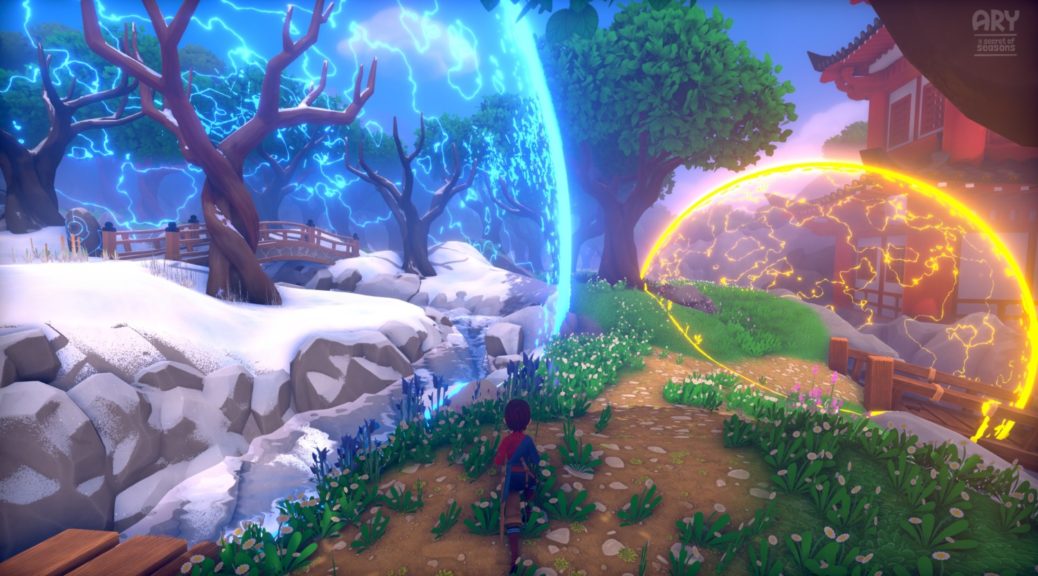
Beyond Point-and-Click: Exploring the Landscape of Award-Winning Adventure Games
Adventure games. The very name conjures images of pixelated protagonists, cryptic puzzles, and narratives that stretch the imagination. While often relegated to a niche corner of the gaming world, adventure games have consistently pushed boundaries in storytelling, character development, and puzzle design, earning them critical acclaim and numerous awards throughout the industry’s history. This article will delve into the captivating world of award-winning adventure games, examining their evolution, key characteristics, and the enduring appeal that keeps players coming back for more.
A History Etched in Pixels: The Golden Age and Beyond
The roots of the adventure game genre can be traced back to text-based adventures like "Colossal Cave Adventure" (1976), which relied entirely on player input and descriptive text to create immersive experiences. This evolved into the golden age of point-and-click adventures, spearheaded by companies like Sierra On-Line and LucasArts in the late 80s and early 90s.
Sierra, with its iconic "King’s Quest" and "Space Quest" series, introduced vibrant visuals, intricate puzzles, and a sense of wonder that captivated players. Their games often rewarded cleverness and punished mistakes with humorous (and sometimes frustrating) deaths, becoming a hallmark of their style.
LucasArts, on the other hand, embraced a more lighthearted and comedic approach with titles like "Monkey Island," "Day of the Tentacle," and "Indiana Jones and the Fate of Atlantis." Their games were characterized by witty dialogue, memorable characters, and a focus on logical, albeit often quirky, puzzle solutions. Instead of punishing players for errors, LucasArts emphasized exploration and experimentation, making their games more accessible and enjoyable.
These early adventure games were frequently recognized for their innovative gameplay, compelling narratives, and technical achievements, earning awards from publications like Computer Gaming World and Electronic Gaming Monthly. They laid the foundation for the genre and established many of the conventions that continue to define it today.
Defining the Adventure: Core Elements and Evolving Mechanics
While the definition of an adventure game can be broad, certain core elements tend to be present:
- Exploration: Adventure games emphasize exploration of the game world, encouraging players to discover hidden locations, interact with objects, and gather clues.
- Puzzle Solving: Puzzles are central to the gameplay experience. These can range from inventory-based puzzles requiring the use of objects in the environment to logic puzzles that challenge the player’s reasoning skills.
- Narrative Focus: Adventure games prioritize storytelling. Characters are often well-developed, and the plot unfolds gradually as the player progresses. Dialogue and cutscenes play a crucial role in conveying the narrative.
- Character Interaction: Interacting with non-player characters (NPCs) is often essential to solving puzzles and advancing the plot. These interactions can involve dialogue, trading, or performing tasks for NPCs.
Over time, the adventure game genre has evolved beyond the traditional point-and-click format. Games like "Myst" (1993) ushered in an era of first-person perspective, puzzle-focused adventures with stunning visuals. Later, titles like "Grim Fandango" (1998) blended adventure gameplay with film noir aesthetics and a unique art style, earning critical acclaim and multiple awards.
The rise of 3D gaming and the introduction of new gameplay mechanics led to the emergence of subgenres like adventure-action games, which incorporated combat and platforming elements into the traditional adventure formula. Games like "Tomb Raider" (1996) and "Uncharted" (2007) achieved mainstream success, demonstrating the potential for adventure games to appeal to a wider audience.
Award-Winning Examples: A Journey Through Acclaimed Titles
To truly understand the impact of award-winning adventure games, let’s examine some specific examples:
-
"The Secret of Monkey Island" (1990): This LucasArts classic is widely considered one of the greatest adventure games of all time. Its witty writing, memorable characters (like the aspiring pirate Guybrush Threepwood), and clever puzzles earned it numerous awards and a dedicated following. Its humor and charm remain timeless, making it a must-play for any adventure game enthusiast.
-
"Grim Fandango" (1998): This visually stunning and narratively rich adventure game from LucasArts is set in the Land of the Dead, inspired by Mexican folklore. Its unique art style, engaging story, and memorable characters earned it critical acclaim and multiple Game of the Year awards. "Grim Fandango" pushed the boundaries of the genre and demonstrated the potential for adventure games to tell mature and compelling stories.
-
"The Longest Journey" (1999): This Norwegian-developed adventure game features a complex and engaging story about April Ryan, a young art student who discovers she can travel between two worlds: Stark, a technologically advanced world, and Arcadia, a world of magic and fantasy. "The Longest Journey" was praised for its compelling characters, intricate plot, and thought-provoking themes, earning it numerous awards and cementing its place as a modern classic.
-
"Syberia" (2002): This adventure game follows Kate Walker, a lawyer tasked with finalizing the sale of an old automaton factory. Her journey takes her across Europe and into the heart of Siberia, where she encounters fascinating characters and unravels a captivating mystery. "Syberia" was praised for its beautiful visuals, atmospheric setting, and engaging story, earning it numerous awards and spawning a successful franchise.
-
"Life is Strange" (2015): This episodic adventure game from Dontnod Entertainment tells the story of Max Caulfield, a photography student who discovers she has the ability to rewind time. "Life is Strange" tackles mature themes like bullying, suicide, and social inequality, and its choice-driven narrative allows players to shape the story and its outcome. The game was praised for its compelling characters, emotional storyline, and unique gameplay mechanics, earning it numerous awards and critical acclaim.
-
"Disco Elysium" (2019): This groundbreaking RPG and adventure game hybrid from ZA/UM places players in the role of a detective with a unique skill system and a troubled past. "Disco Elysium" features a complex and branching narrative, a rich and detailed world, and a philosophical exploration of themes like politics, identity, and morality. Its innovative gameplay, compelling writing, and artistic vision earned it widespread critical acclaim and numerous Game of the Year awards.
The Enduring Appeal of Adventure Games: Why They Still Matter
Despite the rise of action-packed blockbusters and competitive online games, adventure games continue to hold a special place in the hearts of many gamers. Their enduring appeal can be attributed to several factors:
- Engaging Storytelling: Adventure games offer a unique opportunity for developers to tell compelling stories and explore complex themes. They allow players to become invested in the characters and the world, creating a more immersive and meaningful experience.
- Challenging Puzzles: Solving puzzles provides a sense of accomplishment and satisfaction. Adventure games often require players to think critically, observe their surroundings, and experiment with different solutions.
- Exploration and Discovery: Adventure games encourage players to explore the game world and uncover its secrets. This sense of discovery can be incredibly rewarding, especially when the world is richly detailed and full of interesting characters and locations.
- A Slower Pace: In a world of fast-paced action games, adventure games offer a more relaxed and contemplative experience. They allow players to take their time, soak in the atmosphere, and appreciate the details of the world.
- Nostalgia: For many gamers, adventure games evoke a sense of nostalgia for the golden age of gaming. Replaying classic titles or discovering new ones can be a way to reconnect with their childhood and relive the magic of early gaming experiences.
The Future of Adventure Games: Innovation and Evolution
The adventure game genre is constantly evolving, with developers experimenting with new gameplay mechanics, narrative structures, and visual styles. The rise of indie game development has also led to a resurgence of creativity and innovation within the genre.
We can expect to see more adventure games that blend traditional gameplay with modern sensibilities, exploring new themes and pushing the boundaries of storytelling. The integration of VR technology also holds exciting possibilities for creating even more immersive and engaging adventure game experiences.
In conclusion, award-winning adventure games represent a vital and enduring part of gaming history. Their focus on storytelling, puzzle-solving, and exploration has captivated players for decades, and their influence can be seen in many other genres. As the genre continues to evolve, we can look forward to a future filled with even more captivating and award-worthy adventures. The journey, it seems, is far from over.

